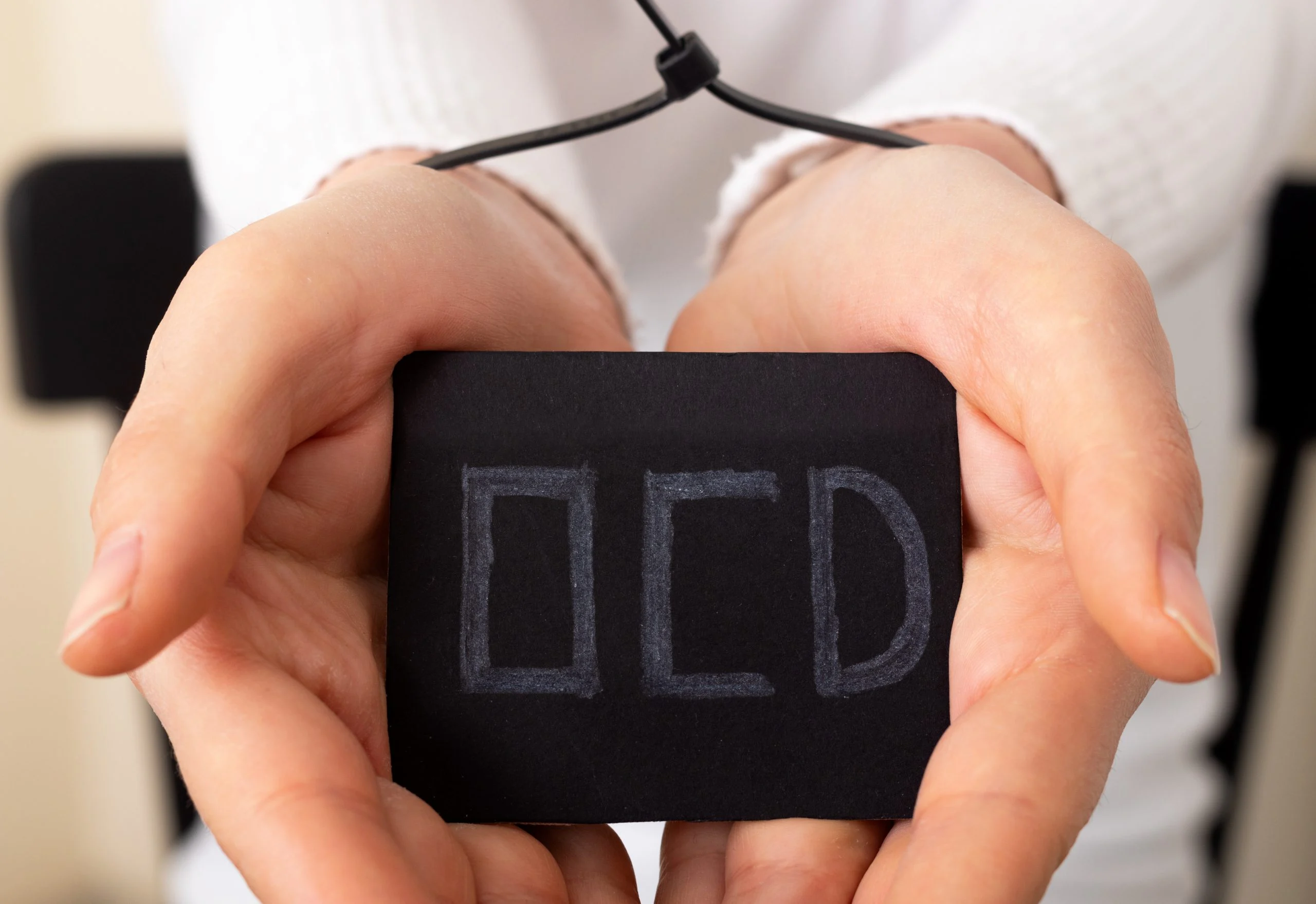Think back to a time when you’ve had an annoying song stuck in your head. No matter how hard you try, you cannot help but sing that tune over and over, and over again. You can ignore it, but it’s still there. You can distract yourself from it, but it’s still there.
This is what living life with OCD is like, except instead of a repetitive jingle, it’s a repetitive fear.
This fear is so powerful, it can feel overwhelming. It is a fear that consumes you and comes knocking at your door relentlessly until you have no choice but to give in.
Living life with obsessive-compulsive disorder can seem challenging at best and debilitating at worst. Even with the negative mental health stigma slowly fading away, there’s still an incredible amount of misinformation in society about this condition.
So, what exactly is Obsessive Compulsive Disorder? What different types of OCD are out there? Let’s explore this topic.
Defining Obsessive Compulsive Disorder
Obsessive Compulsive Disorder or OCD is a mental health condition that causes an individual to have relentless, intrusive thoughts (obsessions) that then lead to repetitive, ritualistic behaviours (compulsions).
The thoughts that occur in OCD are uncontrollable and unwanted. A person suffering from OCD may constantly live on the edge, in fear of becoming triggered. When these intrusive thoughts do arise, they may push someone to perform certain acts to provide relief and peace.
Obsessive Compulsive Disorder centres around a fear that something bad will happen if these behaviours are not performed. Whilst the different types of OCD vary, the process is the same. Powerful, relentless thoughts directly cause certain behaviours that then must occur for an individual to move along with their day.
How Do I Know If I Have Obsessive Compulsive Disorder?
If you are questioning whether or not you have OCD, it is likely you do – to a degree. Obsessive Compulsive Disorder manifests in two ways: obsessive thoughts and compulsive behaviours.
Symptoms of Obsessive Compulsive Disorder:
- Difficulty handling surprises
- Needing everything to be in order and symmetric
- Unwanted aggressive thoughts
- Intense stress when things are not put away in their place
- Feeling driven by an unknown force to perform repetitive behaviours
- Feeling like you have to repeat these behaviours in order to feel calm
Examples of Obsessive Thoughts:
- Fear of being dirty
- Fear of becoming contaminated
- Fear of catching an illness
- Fear of harming oneself or others
- Fear of losing control
Examples of Compulsive Behaviours:
- Excessive hand washing
- Excessive bathing
- Constantly cleaning
- Constantly counting
- Excessively checking locks
- Checking, and rechecking stovetops and other kitchen appliances
- Arranging, and rearranging household items
While these behaviours may not seem like the end of the world, it is important to note that an individual suffering from OCD will take these actions to the extreme. Instead of washing their hands once or twice, they will scrub them until they feel raw or bleed. Instead of going back to check their door is locked on their way out, they will lock, unlock, and relock until they feel their anxiety subside. This can cause many problems for daily life.
OCD can co-occur with BDD (Body Dysmorphic Disorder). This is thought to be because both conditions share many of the same underlying causes.
What Are the Different Types of Obsessive Compulsive Disorder?
Like nearly every mental health condition, OCD isn’t simply black or white. Obsessive Compulsive Disorder comes in many different flavours, all stemming from a different fear at the very core.
- Contamination OCD: This type of OCD stems from an immense fear of becoming dirty, or infected. These people will apply hand sanitiser religiously, wash their hands until they crack, and avoid public places for fear of the unknown. In some cases, just the idea of falling ill and passing it along to another person is enough to cause them a panic attack.
- ‘Just So’ OCD: This is often what many people in society think of when they hear the word ‘OCD’. These individuals may not be able to go about their day until they’ve performed a certain task just right. They may feel an overwhelming itch or anxiety building up inside of them causing them to do things repeatedly with no logic or reason. This is the only type of OCD that isn’t rooted in fear – the individual feels like they must.
- Harm OCD: A person with harm OCD may suffer greatly from the inability to trust themselves. They might constantly be fighting intrusive thoughts regarding hurting themselves or others. This can cause them to avoid all situations that may trigger these thoughts such as kitchen utensils, or horror films. These people often visualise terrifying, gory thoughts that play on repeat.
- Moral OCD: With moral OCD, or scrupulosity OCD, individuals may become obsessed with living life to extremely high religious standards. They may feel constant guilt or shame for not being able to adhere to every law and might engage in repetitive praying to balance these negative thoughts.
- Order and Symmetry OCD: This type of OCD revolves around the placement of items. Rather than seeing organisation as a guideline for life, it is viewed as a hard and fast rule, never to be broken. If things become out of place, anxiety and panic can arise. #
- Sexual OCD: Topics such as rape, assault, incest, or paedophilia are constantly bombarding the mind of someone with sexual OCD. It is important to note that a large majority of people with this type of OCD do not act upon these thoughts. They are unwanted and relentless and can cause someone great suffering.
- Losing Control OCD: Someone with this form of OCD may experience extreme thoughts related to the fear of having a psychotic break, becoming a mass murderer, or simply going crazy. These people are so afraid in fact, that they will avoid all situations that may trigger this feeling such as haunted houses or anything Halloween. Not out of disinterest but out of fear that it will increase their chances of a psychotic break.
Relationship OCD, post-partum OCD, and health OCD are three other common themes found in individuals with Obsessive Compulsive Disorder. As you can see, they stem from a fear of impending doom and either engage in behaviours to soothe these fears or completely avoid anything remotely related to the topic.
Final Thoughts
No matter what type of OCD you suffer from, one thing remains the same: these intrusive thoughts can become so strong and so frequent you genuinely believe them. This may cause you to act in ways that cause great disruption to your daily routine.
Obsessive Compulsive Disorder is a very real, very frustrating mental health condition. If you suspect you may have OCD, it is vital to seek help. Obsessive Compulsive Disorder may feel like it runs the show now, but this condition does not have to be a life sentence.
Orchestrate Health offers bespoke mental health services that people can access from the comfort of their own home or within their community, with rapid response times and even daily visits if needed. Orchestrate Health can provide help for those struggling with Obsessive Compulsive Disorder, and remove the inconvenience of travelling to and from appointments.
Resources:












